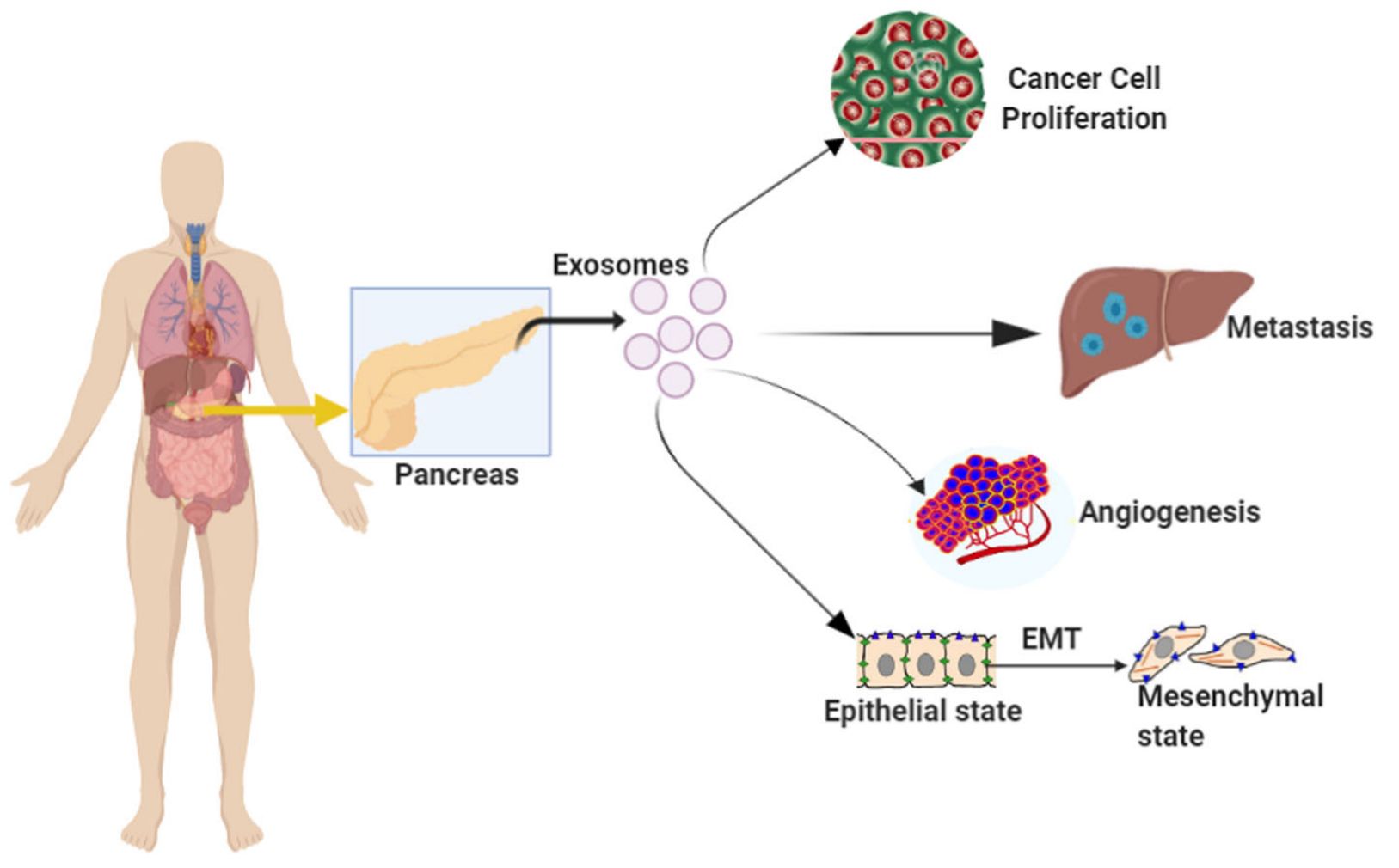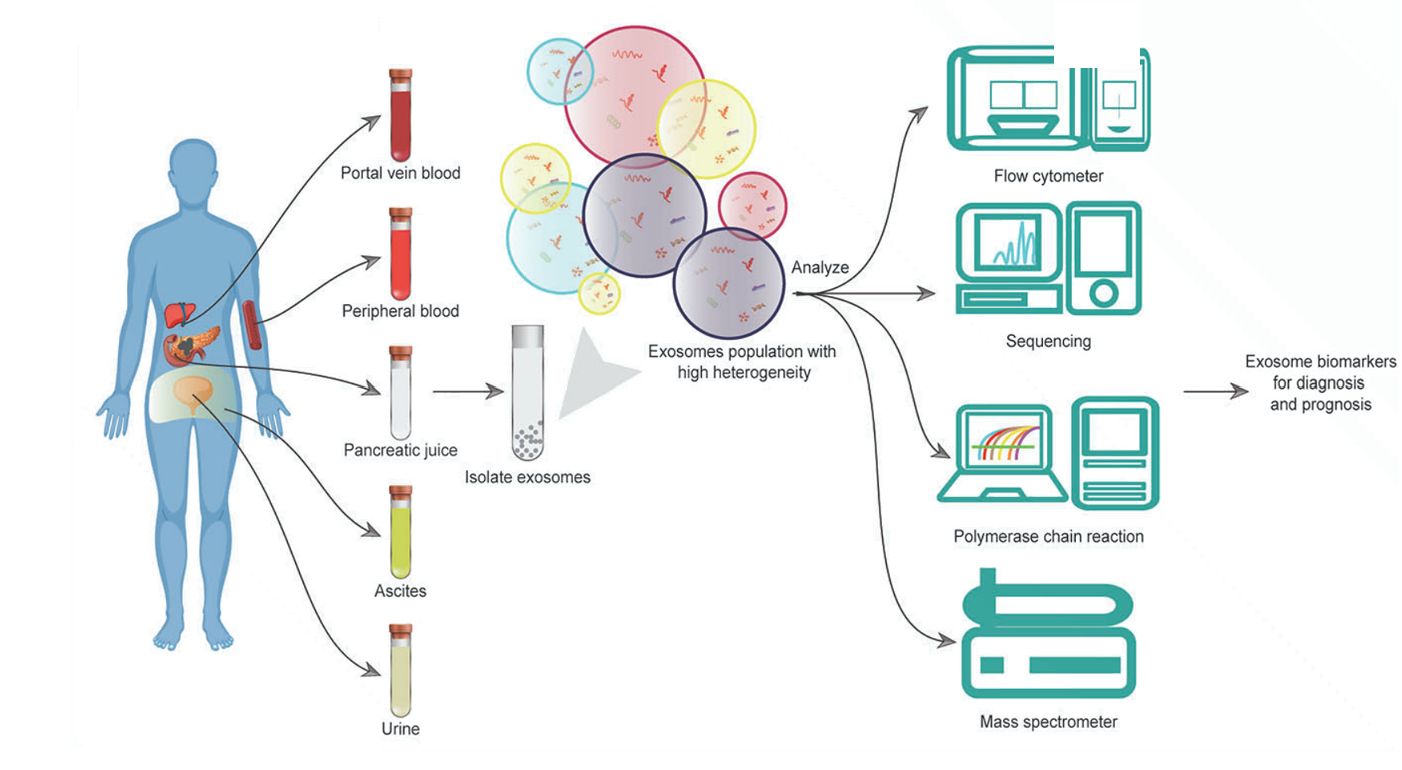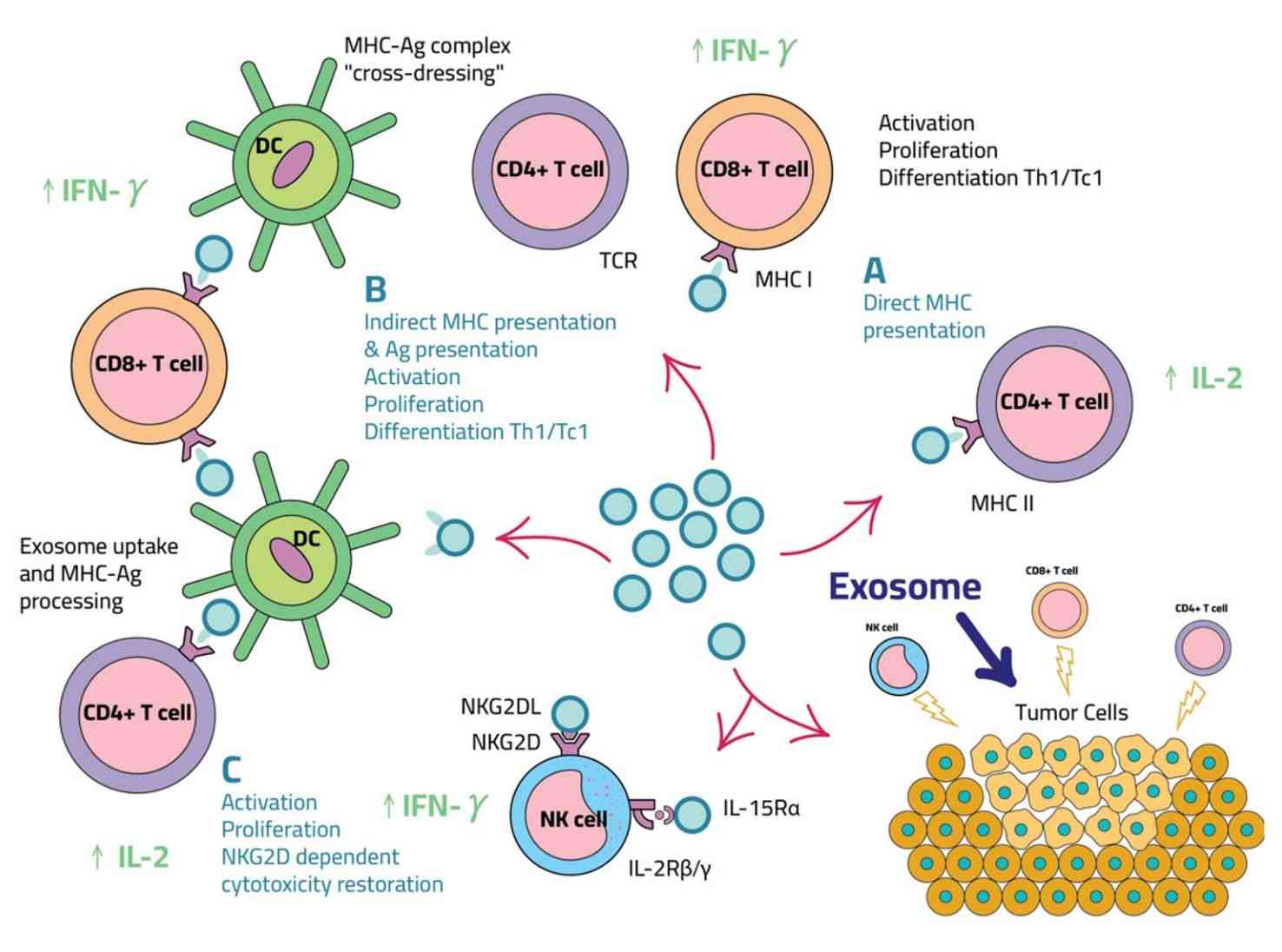Exosome Research in Human Pancreas Carcinoma
Pancreas carcinoma/ Pancreatic cancer (PC) is a malignant tumor of the digestive system with a high mortality rate, and its prognosis is poor due to atypical symptoms, low rate of early detection, excessive progression, and difficulty in clinical treatment. There are no sensitive early diagnostic biomarkers or imaging techniques.
Research has found that exosomes play an essential role in PC progression, metastasis, and chemoresistance, and are potential biomarkers for PC diagnosis. Therefore, it is important to research the role of exosomes in PC.
The Role of Exosomes in PC Progression
Although the diagnosis and treatment of PC have made great progress in the past decades, the 5-year survival rate is still low due to its high degree of malignancy, rapid progression, and strong metastasis. Exosomes are a kind of nanoscale membrane vesicles, secreted by a variety of cells, carrying proteins, lipids, and nucleic acids, which are involved in the physiological and pathological processes of inter-cellular material transport, information transfer, tumor development, and metastasis. Research has found that exosomes play a critical role in the metastasis of PC. Exosomes regulate PC metastasis through epithelial-mesenchymal transition, promoting angiogenesis in the tumor microenvironment, and participating in the formation of immunosuppressive microenvironment.
 Figure 1. Exosomes impact on pancreatic cancer progression. (Ariston Gabriel AN, et al., 2020)
Figure 1. Exosomes impact on pancreatic cancer progression. (Ariston Gabriel AN, et al., 2020)
Exosomes as Biomarkers for PC Diagnosis
Due to the lack of effective detection markers, most PC patients are in advanced stages when they are diagnosed, and the treatment effect is limited. Therefore, early diagnosis is an effective way to improve prognosis and timely treatment. Since having a lipid bilayer membrane structure, containing a large number of biologically active substances, reflecting the characteristics of parental cells, widely present in various body fluids, and non-invasive and real-time isolation, exosomes have become a potential marker for the early diagnosis of tumors.
 Figure 2. Potential use of exosomes as biomarkers of pancreatic cancer. (Chen K, et al., 2021)
Figure 2. Potential use of exosomes as biomarkers of pancreatic cancer. (Chen K, et al., 2021)
- Exosomal RNA and PC Diagnosis
miRNAs enriched in exosomes can be used as early diagnostic markers for malignant tumors. Researchers constructed a serum exosomal 6-miRNAome and demonstrated that the combination has better diagnostic performance than a single marker.
Abnormal expression of exosomal LncRNAs in PC has been researched. Researchers identified a serum exosomal lncRNA-HULC and demonstrated that lncRNA-HULC can be used as a diagnostic marker for PC.
In recent years, some research has demonstrated that the elevated expression of circular RNAs (circRNAs) circ-IARS and circ-PDE8A in PC exosomes may be important indicators for early diagnosis and prognosis prediction of PC.
Through next-generation sequencing (EXO-NGS), researchers found that among different mRNA transcripts, MMP8, TBX3, PDX1, CTSL, and SIGLEC15 have higher expression in PC patients, which shows the potential value of exosomal mRNAs in PC diagnosis.
- Exosomal DNA and PC Diagnosis
Genomic mutations in exosomal DNA are important diagnostic markers, which opens up the possibility of using exosomal DNA from patients to diagnose PC. Research has identified KRAS and P53 as two genes known to have high mutation rates in PC patients. Higher KRAS mutations in exosomes were associated with reduced disease-free survival (DFS) in patients with limited PC. In addition, researchers used proteomic analysis to identify multiple PC-specific markers on the exosome surface (CLDN4, CD151, EpCAM, LGALS3BP, HIST2H2BF, and HIST2H2BE)
- Exosomal Proteins and PC Diagnosis
In recent years, exosomal proteins have received increasing attention as important biomarkers for the diagnosis of PC. Researchers identified Glypican-1 (GPC1), a proteoglycan that is specifically enriched on the exosome surface of cancer cells, and proposed that GPC1 could be used as a potential noninvasive diagnostic and screening tool to detect early PC. In addition, by quantitatively assessing patients' plasma exosomal phosphatidylserine (PS) expression, it could be used as a biomarker for ultra-early PC patients.
- Exosomal Lipids and PC Diagnosis
Exosomes are usually enriched with lipids such as cholesterol, sphingomyelin, and phosphatidylserine. Researchers analyzed serum exosomal lipids from PC patients by liquid-mass spectrometry (LC-MS) and identified 37 differential lipid components. These lipids showed a strong correlation with clinicopathologic features, suggesting that exosomal lipids may be effective biomarkers for the differential diagnosis of PC.
Using Exosomes to Treat PC
- Modulating Immunity
Exosomes can be used in immunotherapy to induce a durable and targeted immune response against cancer cells. Exosomes promote dendritic cell maturation by exposing dendritic cells to tumor antigens. Mature dendritic cells activate cytotoxic T lymphocytes and natural killer (NK) cells. Tumors have an immunosuppressive microenvironment that prevents the entry and activation of T cells and NK cells and protects cancer cells from immune responses. Therefore, cancer immunotherapy using exosomes to block regulatory T cells (TReg cells) and disrupt inhibitory signals to T cells is promising.
 Figure 3. Exosome-based immunotherapy for pancreatic cancer. (El-Tanani M, et al., 2023)
Figure 3. Exosome-based immunotherapy for pancreatic cancer. (El-Tanani M, et al., 2023)
- Interfering with Tumor Cell Signaling
Most PC patients develop KRAS mutations, which play a crucial role in tumor proliferation and metastasis. In recent years, researchers have used exosomes from fibroblasts for PC therapeutic applications. These exosomes have shRNA or siRNA that inhibit the expression of the oncogene KRAS. The results showed that the expression level of KRAS G12D is reduced in PC cell lines treated with these exosomes. In addition, MSC-derived exosomes can be used as drug carriers into which miR-145-5p is loaded, and these exosomes are injected intratumorally into mice. This microRNA is associated with a reduction in PC tumor cells and exerts its antitumor effects by affecting the TGF-β/Smad3 pathway.
- Reducing Drug Resistance
Gemcitabine is a chemotherapy drug for PC. Researchers loaded the drug into exosomes (ExoGEM) derived from PANC-1 cells and evaluated its therapeutic effects. The results showed that exosome loading of the drug improved the release, delivery, absorption, and therapeutic efficacy of gemcitabine. In addition, the use of these exosomes reduces the side effects associated with chemotherapeutic drugs and can be used for targeted tumor therapy.
- Interference with Tumor Characteristics
Research has shown that miR-1231 is significantly reduced in peripheral blood exosomes of PC patients compared to healthy controls. In addition, miR-1231 is present in exosomes derived from bone marrow MSCs. Transfection of MSCs with the pRNAT-U6 vector increased the expression of this miRNA and its translocation to exosomes in vitro. miR-34a is another anti-tumor miRNA loaded in exosomes. miR-34a in exosomes derived from HEK293 cells reduced tumor growth.
By providing high-quality, reliable exosome products, we aim to facilitate groundbreaking discoveries and innovations in the fight against PC.
| Cat No. | Product Name | Source |
| Exo-CH23 | HQExo™ Exosome-BxPC-3 | Exosome derived from human pancreas carcinoma cell line (BxPC-3 cell line) |
| Explore All Exosomes Isolated from Human Pancreas Carcinoma Cell Line | ||
At Creative Biostructure, we are a pioneering biological company dedicated to advancing the field of exosome research. Our comprehensive suite of exosome services and products enables researchers to delve deeper into the diagnostic and therapeutic potential of exosomes. Feel free to contact us if you have any questions.
References
- Ariston Gabriel AN, et al. The involvement of exosomes in the diagnosis and treatment of pancreatic cancer. Mol Cancer. 2020. 19(1): 132.
- Chen K, et al. The Role of Exosomes in Pancreatic Cancer From Bench to Clinical Application: An Updated Review. Front Oncol. 2021. 11: 644358.
- El-Tanani M, et al. Impact of exosome therapy on pancreatic cancer and its progression. Med Oncol. 2023. 40(8): 225.
- Fang X, et al. Pancreatic cancer and exosomes: role in progression, diagnosis, monitoring, and treatment. Front Oncol. 2023. 13: 1149551.